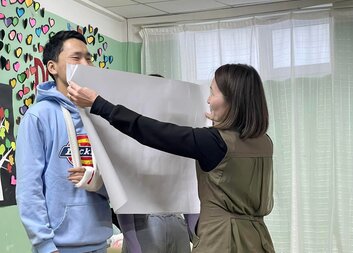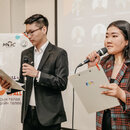Monitoring project on the implementation of the sub-programme for ensuring gender equality in Dornogovi province by Blue Wind of Gobi NGO
Gender equality = Equal opportunity
“The Blue Wind” NGO, which has been selected in the micro project competition within the framework of “All for YOUth, YOUth for All”, a project funded by the European Union, has made a monitoring on their province’s sub-program on providing gender equality, the implementation of “The Provincial sub-program on providing gender equality”, which was approved by an order 06/03 of the Citizens’ Representative Meeting of the Dornogovi province on December 1st and on the arrangements that are going to be organised between 2018 to 2021.
Gender equality is not only about empowering women but to provide all genders with equal opportunities.
They said that monitoring on this issue has the advantage of actually evaluating the results, identifying the strengths and weaknesses of the program, and reflecting public suggestions on how to improve further.
They have accumulated rich experience and have learned a lot since it was their first monitoring project. It is worth noting that we were told by the positive comments in the process of running the project such as on what we're losing to make direct communication government agencies and to work with them, doing impact work for ourselves to work with them, reaching citizens equally, what we need to focus on making financial statements, and what we've been able to see for further improvements.
The members of the Blue Wind of Gobi NGO have got the specific results of their aiming at collecting data on the implementation of the 2018–2021 action plan for the "Second Program for Gender Equality", doing research among the local adolescents to determine their knowledge, understanding, and attitude about gender equality and organise a group discussion to gather information, writing a report, making a recommendation and informing about the result and organising an impact work by analyzing all the information that is collected.
Highlighting the effectiveness of their work processes and mentioning what was critical of them:
- Compiling a statistical database on gender problems, making brochures with gender-based data and distributing them to the province, each year, have become habitual. But there had been no coordination or action taken to create gender equality and eliminate gender disparities using digital data analysis.
- Even though the civil servants organise workshops and activities related to gender equality for the girls and public, the gender-oriented activities of gender-related workers were insufficient.
- Research shows that gender equality is not achieved in labor relations. Most of the children and young people who participated in the survey, 37.6%, answered that there is gender discrimination in labor relations. This indicated that gender stereotypes were still influential and gender awareness was weak among executives.
-
During the monitoring and analysis of the program implementation report, there are cases where operational planning and implementation are not coordinated. Due to this, the planned activities were implemented ineffectively.
-
Even though cooperation with the non-governmental organisations and the civil societies has been initiated, there is no written report on how cooperation was carried out and what the results were.

Furthermore, they have studied the knowledge of children and youth about the program. As a result, Blue Wind of Gobi” has listened to and gathered feedback and information on local gender equality, the knowledge and understanding of volunteers and supporters at the Blue Wind of Gobi, the ongoing issues, the information on local gender policies and programs and on what issues to work on to improving the gender equality further.
In addition, they evaluated the knowledge and understanding of children and young people about the gender norms. As a result, volunteer members and supporters of the Govi Blue Wind NGO collected opinions on local gender equality, their awareness of local gender policies and programs, and what issues to focus on to improve gender equality in the future.
Lastly, they have came to a conclusion that the notion of gender equality among teenagers and young people is inadequate, the source who has been briefed on this is television broadcast, and there is a willingness to raise awareness and understanding of this further, which has not been covered by any other workshops, meetings or discussions.






